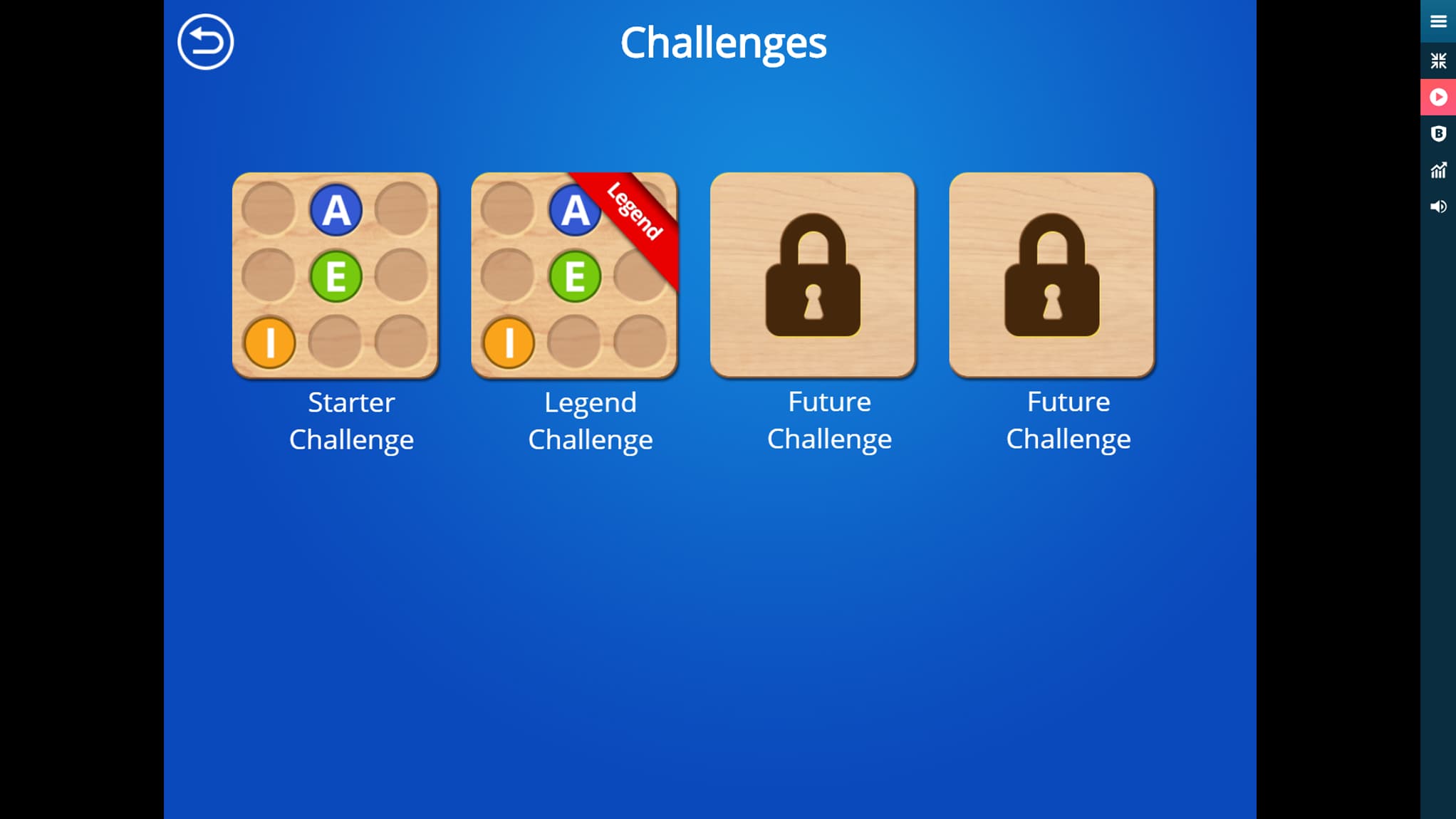A Way With Words Hint: Unlock Your Linguistic Potential
Hey there, word wizards! Are you ready to dive deep into the magical world of language? Today, we're talking about "a way with words hint." Ever wondered how some people seem to effortlessly craft sentences that captivate hearts and minds? Well, buckle up because we're about to uncover the secrets behind mastering the art of communication. Whether you're a writer, speaker, or just someone who loves playing with words, this article will give you the tools to level up your linguistic game.
Imagine this: you're in a room full of people, and suddenly, everyone stops to listen to your every word. Sounds like magic, right? But here's the thing—it's not magic. It's skill. A way with words hint can transform ordinary sentences into extraordinary stories. From choosing the right words to structuring your thoughts, we'll break down everything you need to know.
Now, I know what you're thinking—can anyone really become a wordsmith? The answer is a resounding YES. With the right guidance and practice, anyone can develop a way with words. So, let's get started and discover how to unlock your inner linguistic genius. Trust me; by the end of this article, you'll be crafting sentences like a pro.
- Who Was Chris Cuomo Married To
- Starting Lineup Boston Celtics
- Groups Similar To The Temptations
- Michael Jackson Home In Gary Indiana
- What Does Adam Sandler S House Look Like
Table of Contents
- Biography: The Power of Words
- Defining "A Way with Words"
- Why Is It Important?
- Key Elements of Mastering Words
- Common Mistakes to Avoid
- Practical Tips for Improvement
- Tools and Resources
- Real-Life Examples
- Insights from Linguistic Experts
- Final Thoughts and Call to Action
Biography: The Power of Words
Before we dive into the nitty-gritty of "a way with words hint," let's take a moment to appreciate the power of language. Words have the ability to inspire, persuade, and connect. Throughout history, great leaders, writers, and thinkers have used their words to change the world. From Martin Luther King Jr.'s powerful speeches to Shakespeare's timeless plays, the impact of words is undeniable.
In this section, we'll explore the lives of some of the most influential wordsmiths and what we can learn from them. But first, here's a quick glance at some key figures:
Biographical Data
| Name | Profession | Notable Works |
|---|---|---|
| William Shakespeare | Playwright, Poet | Hamlet, Macbeth, Romeo and Juliet |
| Martin Luther King Jr. | Civil Rights Activist | I Have a Dream Speech |
| Maya Angelou | Poet, Author | I Know Why the Caged Bird Sings |
These individuals didn't just write words—they created movements. Their ability to harness the power of language is something we can all aspire to. Now, let's move on to understanding what it really means to have a way with words.
- Palace Station Movies Theater
- What Happens To Will In Stranger Things
- The Jeffersons Cast Dead Or Alive
- Joe Rogan Wife Ufc
- Vitar For
Defining "A Way with Words"
So, what exactly does it mean to have a way with words? Simply put, it's the ability to express ideas clearly, persuasively, and beautifully. It's not just about having a vast vocabulary; it's about knowing how to use words effectively to convey meaning. Think of it as a superpower that allows you to communicate in a way that resonates with others.
People with a way with words hint often have the following qualities:
- Clarity: They can express complex ideas in simple terms.
- Persuasion: Their words can inspire action or change perspectives.
- Empathy: They understand their audience and tailor their message accordingly.
But here's the thing: having a way with words isn't something you're born with—it's something you develop. And that brings us to the next question: why is it so important?
Why Is It Important?
In today's fast-paced world, communication is key. Whether you're pitching a business idea, delivering a presentation, or simply having a conversation, your ability to use words effectively can make all the difference. Here are a few reasons why developing a way with words hint is crucial:
1. Career Advancement
Employers value employees who can communicate clearly and effectively. Whether you're writing emails, giving presentations, or negotiating deals, strong communication skills can set you apart from the competition.
2. Building Relationships
Words have the power to connect people. By expressing yourself clearly and empathetically, you can build stronger relationships both personally and professionally.
3. Influence and Persuasion
If you want to inspire others or drive change, you need to know how to use words to your advantage. From motivational speeches to social media posts, your words can shape opinions and influence behavior.
Now that we understand why it's important, let's explore the key elements of mastering words.
Key Elements of Mastering Words
Becoming a wordsmith isn't just about learning a bunch of fancy vocabulary. It's about understanding the key elements that make communication effective. Here are some of the most important factors:
1. Vocabulary
A strong vocabulary is the foundation of good communication. But it's not just about knowing big words—it's about knowing the right words for the right context. Expand your vocabulary by reading widely and using new words in your daily conversations.
2. Grammar and Syntax
Good grammar and syntax ensure that your message is clear and easy to understand. While it's okay to bend the rules occasionally for effect, mastering the basics is essential for effective communication.
3. Tone and Style
Your tone and style can make or break your message. Whether you're writing a formal report or a casual email, choose a tone that matches the context and your audience.
4. Structure
A well-structured message is easier to follow and more likely to be remembered. Use headings, bullet points, and clear transitions to guide your audience through your thoughts.
Now that we've covered the basics, let's talk about some common mistakes to avoid.
Common Mistakes to Avoid
Even the best wordsmiths make mistakes from time to time. Here are some common pitfalls to watch out for:
- Overusing jargon: While technical terms can be useful, too much jargon can alienate your audience.
- Ignoring context: Your message should always be tailored to your audience and the situation.
- Forgetting clarity: Always prioritize clarity over complexity. If your audience doesn't understand your message, it doesn't matter how clever it is.
Avoiding these mistakes will help you communicate more effectively. But knowing what not to do is only half the battle. Let's move on to some practical tips for improvement.
Practical Tips for Improvement
So, you want to improve your way with words hint? Here are some actionable tips to help you get started:
1. Read Widely
Reading is one of the best ways to improve your vocabulary and writing skills. Whether it's fiction, non-fiction, or poetry, exposure to different styles of writing can broaden your linguistic horizons.
2. Practice Writing
The more you write, the better you'll get. Start a journal, write blog posts, or even compose emails—just keep practicing. Don't be afraid to experiment with different styles and formats.
3. Seek Feedback
Getting feedback from others can help you identify areas for improvement. Share your work with trusted friends or colleagues and ask for their honest opinions.
4. Study Great Writers
Learn from the best. Analyze the works of great writers and speakers to see what makes their communication so effective. Pay attention to their word choice, structure, and tone.
With these tips in mind, let's explore some tools and resources that can help you on your journey.
Tools and Resources
In today's digital age, there are plenty of tools and resources available to help you improve your way with words hint. Here are a few of our favorites:
- Grammarly: A powerful tool for checking grammar and improving writing.
- The Free Dictionary: A great resource for expanding your vocabulary.
- Coursera: Offers a wide range of courses on writing and communication.
These tools can provide valuable support as you work to improve your communication skills. But remember, no tool can replace practice and dedication.
Real-Life Examples
Let's take a look at some real-life examples of people who have mastered the art of communication. From famous speeches to bestselling books, these examples demonstrate the power of a way with words hint:
1. Barack Obama's Speeches
Former President Barack Obama is known for his exceptional oratory skills. His speeches often combine powerful rhetoric with emotional resonance, making them unforgettable.
2. J.K. Rowling's Writing
The author of the Harry Potter series, J.K. Rowling, has captivated millions with her storytelling. Her ability to create vivid worlds and relatable characters is a testament to her mastery of language.
These examples show that a way with words can have a lasting impact. But what do the experts have to say?
Insights from Linguistic Experts
Linguistic experts have spent years studying the science of communication. Here are a few insights from some of the top experts in the field:
1. Steven Pinker
Renowned linguist Steven Pinker emphasizes the importance of clarity and simplicity in communication. He argues that good writing should be accessible to a wide audience, not just experts.
2. Noam Chomsky
As one of the most influential linguists of our time, Noam Chomsky has explored the deep structures of language. His work highlights the complexity and beauty of human communication.
These insights provide valuable context for anyone looking to improve their way with words hint. But the journey doesn't end here.
Final Thoughts and Call to Action
Having a way with words hint is more than just a skill—it's a superpower. It allows you to connect with others, inspire change, and make a difference in the world. By understanding the key elements of effective communication and practicing consistently, you can unlock your full linguistic potential.
So, what are you waiting for? Start practicing today. Read more, write more, and seek feedback from others. And don't forget to share your journey with us. Leave a comment below or share this article with your friends. Together, we can all become better communicators.
Remember, the power of words is limitless. Use it wisely, and you'll be amazed at what you can achieve. Now go out there and show the world what you're made of!
Article Recommendations
- Palace Station Movies Theater
- The Monarch Club
- Vitar For
- Cancer And Aquarius
- Pregnant Michelle Obama



Detail Author:
- Name : Edgar Smitham
- Username : paige27
- Email : mante.raquel@yahoo.com
- Birthdate : 1996-06-22
- Address : 917 Padberg Gardens Suite 377 Damiontown, AK 37738
- Phone : +1-781-501-3251
- Company : Turcotte Group
- Job : Electrical and Electronics Drafter
- Bio : Et alias quia quos rerum illum fugiat. Nihil voluptas aut et aut ipsam optio rem. In quaerat explicabo occaecati voluptas doloribus cumque. Eos omnis molestiae incidunt unde tenetur architecto.
Socials
tiktok:
- url : https://tiktok.com/@trace.senger
- username : trace.senger
- bio : Velit et asperiores similique in quo accusantium id.
- followers : 4372
- following : 382
twitter:
- url : https://twitter.com/trace_senger
- username : trace_senger
- bio : Molestias sapiente inventore inventore ab blanditiis. Tempora qui voluptatibus maxime excepturi quibusdam aut animi. Quia occaecati earum vel vitae.
- followers : 5160
- following : 1803
linkedin:
- url : https://linkedin.com/in/trace_real
- username : trace_real
- bio : Est officia voluptatem voluptatibus suscipit.
- followers : 4778
- following : 1599
instagram:
- url : https://instagram.com/tracesenger
- username : tracesenger
- bio : Sit non veritatis ducimus beatae sed iste sed. Repudiandae corporis maxime soluta.
- followers : 2558
- following : 583
facebook:
- url : https://facebook.com/trace_senger
- username : trace_senger
- bio : Autem fugit minus et earum distinctio iure cum. Sit nobis id tempora ut.
- followers : 5503
- following : 454